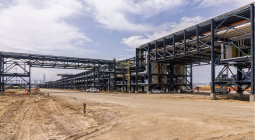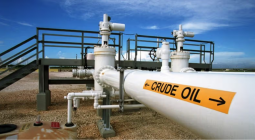Nigeria reportedly maintains position as Africa's top crude oil producer

- Nigeria's daily oil production for July increased to 1.61 million barrels per day.
- The country maintains its position as Africa's top crude oil producer.
- Efforts are being made to optimize output, improve regulatory monitoring, and assure correct measurement and accounting.
Two weeks ago, the commission had announced that Nigeria’s average daily oil production was 1.25mbpd, however, during the House of Representatives Special Committee’s two-day public/investigative hearing on oil theft/losses, the commission revealed that Nigeria’s current daily oil production is 1.61mbpd.
“As of July 23, 2024, Nigeria’s average daily production stands at 1.61mbpd,” he disclosed.
Nigeria has maintained its position as Africa's top crude oil producer, according to Komolafe, as seen in the Punch newspaper, with proven reserves of 37.50 billion barrels and a production capacity of around 2.19 million barrels per day.
The commission's head stated that the NUPRC intends to optimize output, improve regulatory monitoring, and assure correct measurement and accounting.
He also noted that the NUPRC is enhancing rig availability while minimizing non-productive time by releasing heavy crude oil deposits through industry workshops.
During the meeting, he acknowledged the oil theft and vandalism crisis that continues to plague the Nigerian oil sector.
For example, Dataphyte estimates that the country's oil regulatory body spent N136 billion in 2023 on security, repairs, and upkeep of damaged assets.
“This has prompted the commission to employ end-to-end production monitoring and a mass balance methodology to accurately account for losses and differentiate them from operational losses. These interventions have significantly reduced theft, with zero incidents reported in July 2023,” Komolafe revealed.
The NUPRC boss disclosed that the group had implemented various innovative methods to improve openness and accountability.
“Other innovations include the Advanced Cargo Declaration Regulation that ensures no crude oil is exported without proper accounting and assigns a unique identification number to each cargo, the Upstream Metering Regulation, which mandates reliable metering systems to account for all hydrocarbon production and exports, and real-time cargo tracking and digital documentation to improve visibility and efficiency in cargo operations,” he said.





